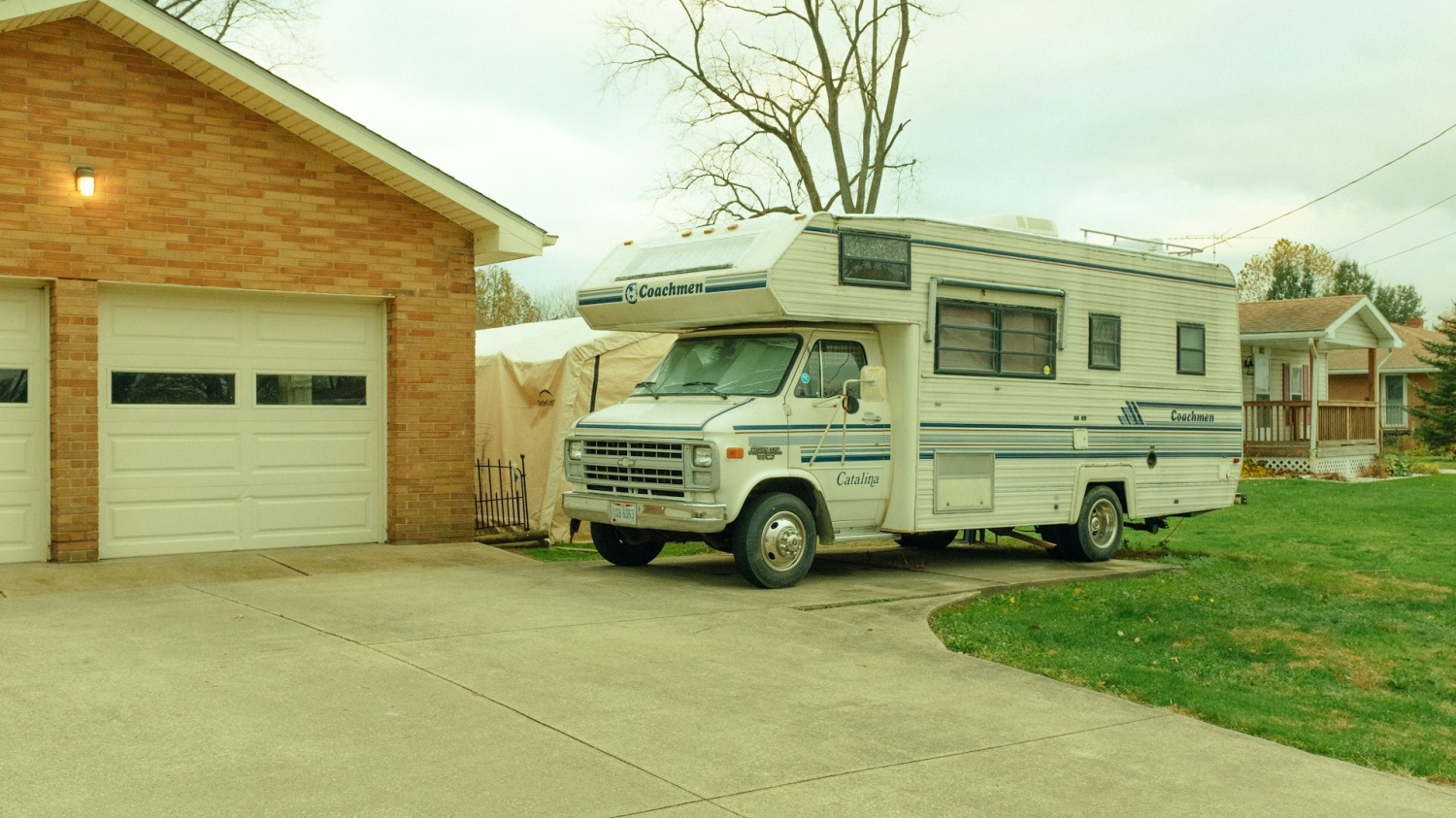The allure of the open road, the promise of adventure, and the freedom to explore—these are the things that draw people to recreational vehicles (RVs).
But deciding between renting and buying an RV is a significant choice for adventure-seekers. An RV opens up endless possibilities for travel and exploration but comes with its own set of considerations. Whether you're dreaming of weekend getaways or long-term explorations, the decision to rent or buy an RV at a car auction is not one to take lightly.
Choosing the right option depends on various factors, including how often you plan to travel, your budget, and your comfort with maintenance tasks. With the freedom to explore at your own pace and the comfort of having a home on wheels, both renting and buying have their advantages. Keep reading to discover which choice aligns with your travel dreams and practical needs.
Benefits of Buying an RV
Owning an RV opens up a world of freedom and adventure for travel enthusiasts. With an RV, you can customize your space to your liking, from design to essential gadgets for comfort. You're not just buying a vehicle; you're investing in a lifestyle that promises countless memories and experiences.
Moreover, the financial aspect of owning an RV can be quite advantageous in the long run. Despite the initial investment, owning an RV eliminates the need for costly hotel stays and expensive flights for your travels.
It's All Yours RV
Buying an RV brings an unparalleled sense of ownership. This is your home on wheels, customized to your tastes and needs. You can outfit your RV with the comforts and conveniences that make it truly yours. From selecting the perfect layout to choosing the decor that reflects your style, the customization options are endless. Your RV becomes a personal retreat that is ready for you at all times, reflecting your personal touch in every nook and cranny.
The sense of ownership extends beyond the physical aspects. There's a deep feeling of pride and satisfaction that comes with owning an RV. It becomes a part of your family's adventures, a constant companion on countless trips and memories. This emotional connection to your RV is something that renting simply cannot offer.
You Can Travel Whenever You Want
One of the greatest advantages of owning an RV is the freedom it affords. Spontaneous weekend getaways or long, leisurely vacations become much easier to manage. There's no need to book in advance, wait for rental availability, or adjust your schedule according to someone else's calendar. Your RV is always ready to go when you are.
You Can Rent It Out
For RV owners looking to offset some of their investment, renting out your vehicle when it's not in use presents a lucrative opportunity.
With the rise of peer-to-peer rental platforms, listing your RV has never been easier. You can set your own rental rates, availability, and rules for renters. This flexibility means you can rent out your RV as little or as much as you want, based on your personal use preferences.
The Reality of Owning an RV Camper
Owning an RV offers unparalleled freedom and the joy of exploring new places from the comfort of your own moving home. However, it's not without its challenges. One of the major considerations is the commitment to maintenance and storage. An RV, like any vehicle, requires regular upkeep to ensure it remains in good working condition. This includes routine mechanical checks, repairs, and cleaning, all of which can add up over time.
These aspects of ownership can demand significant time, effort, and financial resources.
What Does It Really Cost to Own an RV?
The cost of owning an RV extends beyond the initial purchase price, which may be quite high. Prospective owners must consider a range of ongoing expenses that can significantly impact the overall affordability. Maintenance costs are a major factor, encompassing everything from routine servicing to unexpected repairs. Insurance premiums are another significant expense, varying widely depending on the RV's size, value, and how often you use it.
Benefits of Renting an RV
Renting an RV presents a flexible and often cost-effective way for travelers to explore without the long-term commitment of ownership. This option is particularly appealing for those new to the RV lifestyle or for individuals who only plan to travel occasionally. Renting allows you to test different types of RVs to see which best suits your needs. You can rent compact vans perfect for solo travelers or couples or larger motorhomes that can accommodate families and groups.
Another advantage of renting is the opportunity to experience the latest models equipped with modern conveniences and technologies. Rental companies frequently update their fleets, offering renters the chance to enjoy new and fully equipped RVs. This way, travelers can enjoy the latest in RV comfort and technology without bearing the full cost of purchasing a new model.
Renting Is Cheaper (Sometimes)
For those planning a one-off trip or who travel infrequently, renting an RV can be significantly more cost-effective than buying. The rental model allows you to pay only for the time you use, avoiding the ongoing costs associated with ownership, such as maintenance, storage, insurance, and depreciation. This makes it an ideal choice for occasional adventurers who prefer not to invest in an asset that will spend most of its time parked in a garage.
Additionally, renting provides a clear upfront cost, which includes the rental fee and any additional options like insurance or kitchen kits. This transparency helps travelers budget more effectively, knowing exactly how much they'll spend on their accommodation and transport.
No RV Maintenance
One of the most compelling benefits of renting an RV is bypassing the maintenance responsibilities that come with ownership. Renters can enjoy their journey without worrying about the upkeep, mechanical issues, or regular servicing that RV owners must manage. Rental companies take care of all maintenance, ensuring that the vehicle is in top condition before you take it on the road. This peace of mind is invaluable, especially for those unfamiliar with the intricacies of RV mechanics.
No Commitment
Renting an RV offers the ultimate flexibility for travelers seeking adventure without commitment. Unlike purchasing, which ties you to a specific model for years, renting allows you to choose a different RV for each trip, depending on your current needs and preferences. This flexibility is particularly appealing for those whose travel companions or destinations may change over time.
Furthermore, renting eliminates the long-term financial commitments associated with owning an RV, such as loan payments, insurance, and depreciation. It's a hassle-free way to enjoy the open road, providing all the adventure with none of the strings attached.
Some Considerations for Those Who Want to Rent an RV
While renting an RV offers flexibility and freedom without long-term commitments, there are several factors to consider before making your decision. Availability can vary greatly, especially during peak travel seasons, requiring renters to plan and book well in advance to secure their preferred model and dates. This need for early planning can sometimes limit spontaneous trips. Additionally, renters are subject to the rules and restrictions set by the rental agency, which can include mileage limits, restrictions on where the RV can be taken, and specific requirements for cleaning and returning the RV. These factors can influence the overall travel experience, making it essential for potential renters to understand the rental agreement's terms thoroughly.
What Does It Cost to Rent an RV Camper?
The cost of renting an RV varies widely based on several factors, including the type of RV, the rental duration, the season, and the rental company. Prices can range from around $50 per day for smaller or older travel trailers to over $250 per day for larger ones. And renting a luxury motorhome may cost quite a lot.
Peak travel seasons, such as summer and holiday weekends, often see higher rates due to increased demand.
Also, renters should account for the cost of insurance, which can be provided by the rental company or through a third-party provider, and any additional fees for amenities or services, such as kitchen kits, linens, or generators.
How to Decide Between Renting or Buying an RV — Food for Thought
Deciding whether to rent or buy an RV is a significant decision that hinges on several factors. These factors include how often you plan to travel, your financial situation, and your lifestyle preferences. If you are someone who dreams of frequent, spontaneous getaways and enjoys the idea of a second home on wheels, buying might be the right path for you. Ownership allows for personalization and the freedom to hit the road whenever the mood strikes, making it a worthy investment for dedicated travelers.
On the other hand, if your travels are more sporadic or you're still exploring the RV lifestyle, renting offers a low-risk way to test the waters. It's also a smart choice for those who prefer variety or wish to avoid the responsibilities and costs associated with maintenance and storage. Renting can offer a taste of the open road without a long-term commitment.
Ultimately, the choice between renting and buying an RV comes down to balancing your travel habits, budget, and how much value you place on ownership versus convenience. So consider how each option aligns with your current and future lifestyle.















